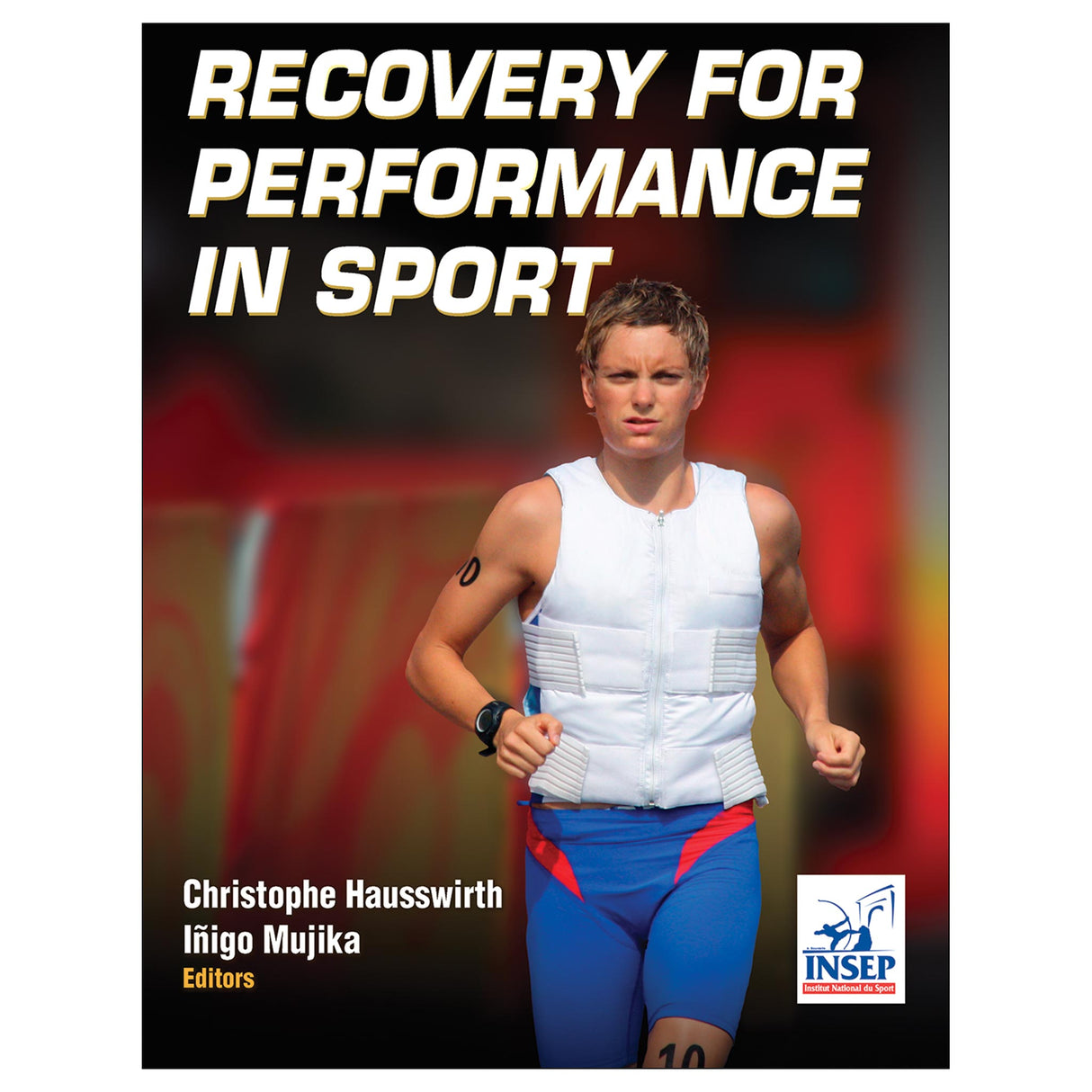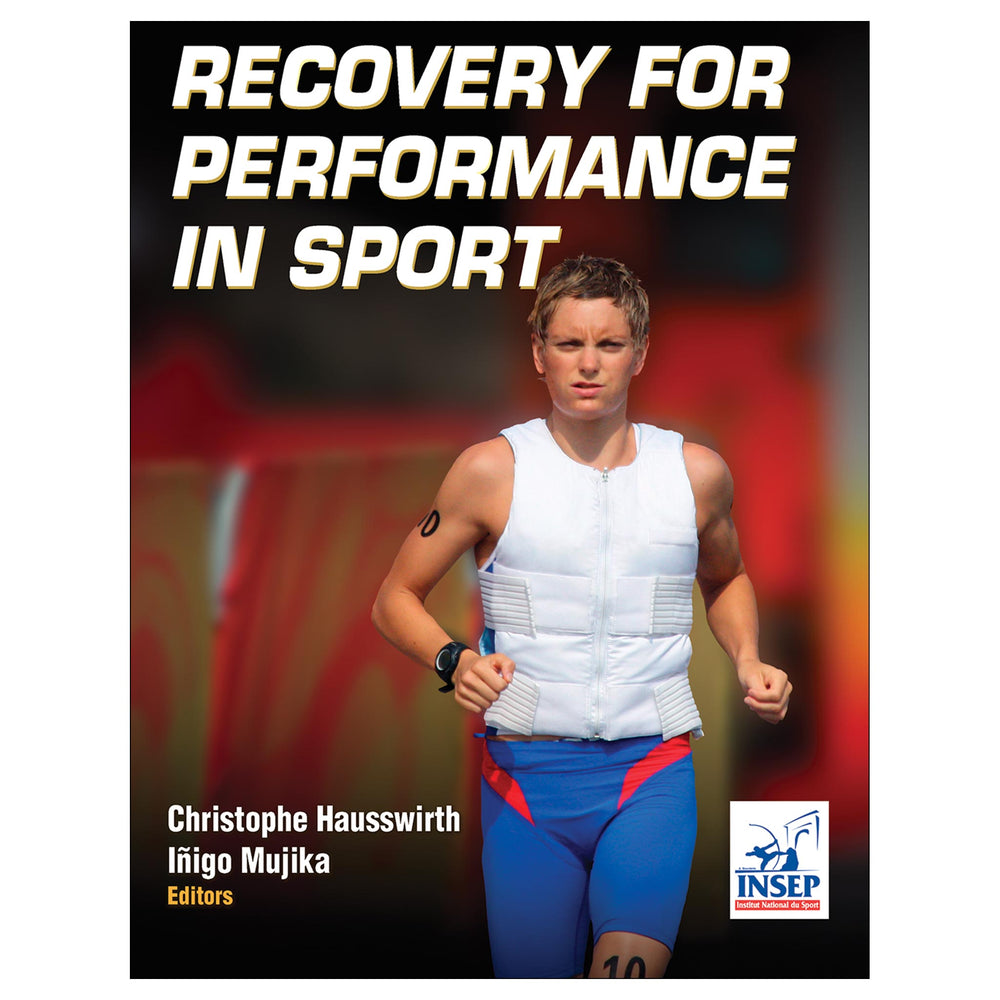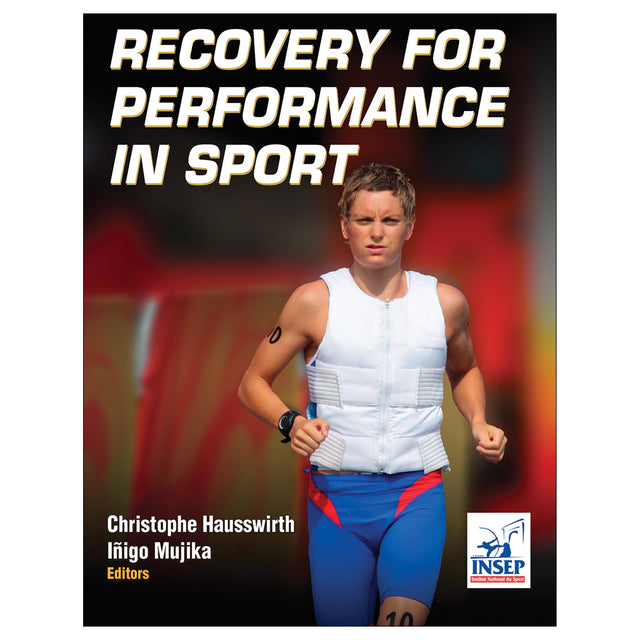Recovery for Performance in Sport PDF
Author: Christophe Hausswirth, Iñigo Mujika
$75.95 CAD
Access Duration: 10 Years
In today’s competitive sport environment, discovering effective methods of facilitating optimal athletic performance is paramount to success. The recovery period is essential in maintaining athletes’ physical and psychological well-being and crucial in the pursuit of intense physical training and satisfying performances. Recovery for Performance in Sport presents techniques and modalities currently used to enhance athletes’ recovery, optimize training time, and avoid overtraining. Edited by members of l’Institut National du Sport, de l'Expertise et de la Performance (INSEP), Christophe Hausswirth, and Iñigo Mujika, the text encompasses the latest scientific research in the study of recovery and draws from the experience of applied sport scientists working with elite athletes in leading performance and recovery centers. Readers will find proven strategies for enhancing the recovery process and learn the importance of structuring an individualized and evidenced-based recovery plan for improving performance.
Appealing to a broad audience encompassing professionals, athletes, coaches, and students, Recovery for Performance in Sport provides a scientific base of information as well as specific elements that allow for practical application in the real world. More than 30 international professionals contributed to chapter content, including case studies of international athletes and coaches. These case studies complement the scientific explanations by bringing additional context to the discussion of safe recovery modalities and how to apply those concepts to specific sports. Cutting-edge research and techniques allow readers to maximize the recovery of their athletes by learning from the proven strategies of international experts.
Recovery for Performance in Sport is divided into four parts, each presenting scientific knowledge, practical applications, and related case studies. The first two parts focus on the physiology of optimal training, how to prevent overtraining, and how to peak for optimal performance. Part III is a discussion of current recovery modalities along with strategies for optimizing recovery through the combination of modalities. Focusing on recovery at the muscular level, this part discusses nutrition strategies, electrostimulation, compression, massage, and immersion procedures, among others.
Part IV of the text considers situations that offer unique variables to consider when choosing recovery techniques. Differences between men and women in postexercise recovery are detailed along with a current discussion of thermoregulatory responses and adaptations to exercise and heat stress. Consideration is also given to the interventions used to alleviate thermal strain and the limitations of various recovery strategies after exercise in the heat. The physiological responses to altitude exposure and its impact on performance and various factors related to recovery are also discussed along with practical recommendations to facilitate altitude adaptation and recovery.
Recovery is one of the least understood and most under-researched components of the exercise-adaptation cycle. Yet, the importance of the recovery period cannot be overstated considering that athletes spend more time in recovery than in active training and that many adaptations to training take place during the recovery period. The current knowledge and applied information featured in Recovery for Performance in Sport will assist readers in improving the recovery process to help athletes achieve easier adaptation to training loads, lower their risk of overload and injury, and ultimately improve athletic performance.
Part I: Fundamentals of Fatigue and Recovery
Chapter 1. Physiology of Exercise Training
Michael Lambert, PhD, Newlands, South Africa
Iñigo Mujika, PhD, Vitoria-Gasteiz, Spain
Overload Physiology
Overload Variables
Training and Recovery
Chapter 2. Overtraining Syndrome
Romain Meeusen, PhD, Brussels, Belgium
Continuum of Fatigue
Prevalence of Overtraining
Overtraining Syndrome Diagnosis Research
Assessment of Overtraining
Part II: Periodization and Managing Recovery
Chapter 3. Overtraining Prevention
Michael Lambert, PhD, Newlands, South Africa
Iñigo Mujika, PhD, Vitoria-Gasteiz, Spain
Periodization Research
Models of Periodization
Monitoring Exercise Tolerance
Fitness and Fatigue Relationship
Chapter 4. Managing Active Recovery
Yann Le Meur, PhD, Paris, France
Christophe Hausswirth, PhD, Paris, France
With: Thierry Blancon, Régis Mollard, Christian Palierne, Frédéric Sadys
Recovery Methods and Interval Work
Recovery Methods and Development of Aerobic Qualities
Active Recovery and Repeated Performances
Single-Performance Recovery
Chapter 5. Psychological Aspects of Recovery
Jean Fournier, PhD, Paris, France
Nicolas Lemyre, PhD, Oslo, Norway
With: Christophe Hausswirth, PhD
Effects of Poor Recovery
Motivation and Burnout
Engagement and Motivation Pattern
Evaluation Methods for Psychological Recovery
Part III: Strategies for Optimizing Recovery
Chapter 6. Stretching
Giuseppe Rabita, PhD, Paris, France
Anne Delextrat, PhD, London, UK
With: Cédric Lucas, Arnaud Daufrène, Frank Métais, Christophe Cozzolino
Types of Muscle Stretches
Physiology of Muscle Stretching
Effects of Stretching on Performance
Stretching and Recovery Research
Chapter 7. Hydration
Christophe Hausswirth, PhD, Paris, France
With: Véronique Rousseau, Éric Joussellin
Distribution of Water Loss During Exercise
Dehydration Processes
Dehydration and Physical Performance
Dehydration and Mental Performance
Hydration Recommendations
Hyperhydration
Chapter 8. Nutrition
Christophe Hausswirth, PhD, Paris, France
With: Véronique Rousseau, Éric Joussellin
Protein Metabolism and Recovery
Combining Protein, Carbohydrate, and Leucine for Muscle Recovery
Branched-Chain Amino Acids and Postexercise Mental Performance
Sugar and Recovery
Coingestion of Carbohydrate and Protein
Chapter 9. Sleep
Yann Le Meur, PhD, Paris, France
Rob Duffield, PhD, Bathurst, Australia
Melissa Skein, PhD, Bathurst, Australia
Stages of the Sleep Cycle
Physiology of Sleep Deprivation
Sleep Deprivation and Exercise Performance
Sleep Deprivation and the Perceptual State
Tryptophan and Sleep Cycles
Hyperhydration and Sleep Disturbances
Effects of Alcohol and Stimulants on Sleep Quality
Advantages of Napping
Chapter 10. Massage and Physiotherapy
Antoine Couturier, PhD, Paris, France
With: Yann Le Meur, PhD, Cécile Huiban, Marc Saunier, François-Xavier Férey
Massage Techniques
Physiological Effects of Massage
Massage and Recovery
Electrostimulation
Physiological Effects of Electrostimulation
Electrostimulation and Recovery
Luminotherapy
Aromatherapy
Chapter 11. Compression Garments
Antoine Couturier, PhD, Paris, France
Rob Duffield, PhD, Bathurst, Australia
Physiological Responses to Compression
Effects During Exercise Performance
Compression and Recovery
Chapter 12. Local Thermal Applications
Sylvain Dorel, PhD, Paris, France
With: Cédric Lucas, Lorenzo Martinez-Pacheco
Physiological Responses to Local Thermal Applications
Muscle Function and Performance Effects
Current Uses and Modes of Application
Chapter 13. Variations in Thermal Ambience
Christophe Hausswirth, PhD, Paris, France
With: François Bieuzen, Marielle Volondat, Hubert Tisal, Jacques Guéneron, Jean-Robert Filliard
Physiological Responses to Air Temperature
Whole-Body Cryotherapy
Dry-Heat Sauna
Far-Infrared Therapy
Humid-Heat Steam Room
Chapter 14. Water Immersion Therapy
François Bieuzen, PhD, Paris, France
With: Marielle Volondat, Marc Michnowski, Christophe Cozzolino
Physiological Responses to Water Immersion
Exercise-Induced Muscle Damage and Immersion
High-Intensity Exercise and Immersion
Field-Based Studies
Part IV: Unique Considerations for Recovery
Chapter 15. Gender Differences
Christophe Hausswirth, PhD, Paris, France
Yann Le Meur, PhD, Paris, France
Recovery and Maintenance of Energy Stores
Metabolic Responses After Brief, Intense Exercise
Chronic Fatigue and Daily Energy Balance
Recovery and the Musculoskeletal Regeneration Process
Targeted Recovery Strategies
Chapter 16. Temperature and Climate
Frank E Marino PhD, Bathurst, Australia
Thermoregulation During Exercise
Exercise-Induced Hyperthermia and Performance
Reducing Thermal Strain and Improving Performance
Morphology and Heat Strain
Heat Stress and Exercise Recovery
Chapter 17. Recovery at Altitude
Charles-Yannick Guézennec, PhD, Font- Romeu, France
With: Nicolas Bourrel
Physiological Responses to Altitude Exposure
Effects of Altitude on Performance
Effects of Altitude on Recovery
Effects of Altitude on Body Composition, Nutrition Patterns, and Sleep
"The book covers each of the components that can contribute to optimal performance and adequate recovery. It reinforces the fundamentals, including prevention, and discusses strategies to optimize recovery as well as various unique situations. This is the first book I have seen that includes the scientific evidence along with practical applications and case studies."
--Doody’s Book Review





